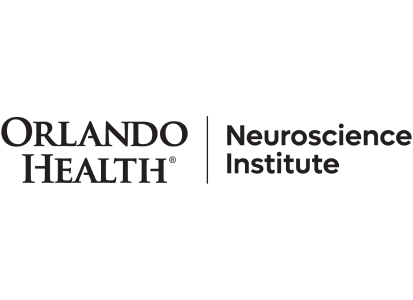Skull Base Lesions
Treating skull base lesions and tumors requires a multidisciplinary approach featuring a range of skills, including neurosurgery, reconstructive surgery and radiation oncology. These lesions and tumors often grow deep inside the skull, close to critical nerves and blood vessels in the brain and spinal cord. At the Orlando Health Neuroscience Institute, we have a team of specialists trained in next-level microscopic, endoscopic, laser and ultrasound surgical techniques, as well as the most advanced radiosurgery procedures. In conjunction with the Orlando Health Cancer Institute, we can also provide proton beam radiotherapy, where we are the only center in Central Florida with this form of treatment. Our compassionate team will work with you to develop a treatment plan for your unique needs to give you the best outcome possible.
Diagnosis
Diagnosing skull base lesions is a challenge. They often do not produce any noticeable symptoms and are commonly discovered during imaging tests for unrelated issues. But if you do have symptoms, diagnosis starts with a physical exam by your doctor, who will also ask about your and your family’s medical history. You will also receive a neurological examination to assess your vision, hearing, coordination, reflexes, thinking and memory. Next, your doctor may suggest a range of diagnostic tools, including:
Radioactive material is injected into your bloodstream. The lesion or tumor will absorb the material, allowing it to be highlighted by a special camera. This helps your doctor pinpoint the location of the lesion and potential spreading to other organs.
These scanners use multiple X-ray images compiled with the help of a computer to create highly detailed 3D images of your head.
A thin, flexible tube mounted with a tiny light and camera is used to examine your nasal passages.
Powerful magnets and radio waves are used to create detailed images of your head.
You are injected with a radioactive tracer material that is absorbed by diseased cells. The scanner produces images that allow your doctor to look for signs of cancer by comparing lesion cells to healthy cells elsewhere in the body.
Treatment
Treatment decisions for skull base lesions and tumors are based on several factors, including your general health, whether the tumor is malignant and its location. For smaller benign lesions that are not causing significant symptoms, your team may suggest observation. If there is no growth or problems created by the lesion, you may not need additional treatment.
But if the lesion is progressively growing, shows signs of malignancy or is causing serious health problems, surgery or radiation therapy may be recommended. Our team of neurosurgeons and radiation oncologists are trained in the latest noninvasive procedures, including:
This procedure uses a thin rigid camera that is inserted through the nose to provide wide visualization and the capacity to reach and remove the lesion in a less invasive fashion.
A small hole made in the eyebrow allows your surgeon to reach lesions near the front of the brain or around the pituitary gland.
Your surgeon cuts a tiny hole in your skull, just behind the ear, to reach the tumor. The location allows access to the cerebellum and brainstem.
Cancerous cells are destroyed by precise particle beams of radiation delivered slowly, over time. Treatments are typically done on an outpatient basis. Typically, you would receive four to five treatments a week over a period of two to nine weeks. The treatment is particularly useful against inoperable tumors.
This procedure uses precision-guided beams of intense radiation to destroy the lesion cells. The goal is to damage the abnormal cells and make the lesion shrink. This may be an option for patients with tumors in areas of the brain that cannot be safely reached through surgery.
Your surgeon gains access to the lesion through a small incision made in the eyelid.
Our team participates in clinical trials that can offer our patients early access to promising surgeries and techniques for skull base lesions.
-
Request an Appointment
-
Meet the Team
Navigate Your Health


Find a Neuroscience Specialist
Find a Neuroscience Specialist
Meet our doctors who specialize in the full range of neuroscience care. Our team of experts has experience in a variety of specialty areas. Together, we provide comprehensive evaluation, diagnosis and treatment options.
Find a Doctor

Virtual Visit
Virtual Visit
Need to talk with a doctor, but don’t want to leave your home? Try our virtual visit (telehealth) option to connect with a physician from your phone, tablet or computer.
Learn More

